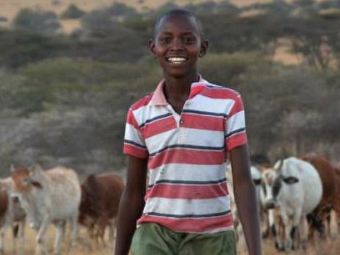 The Maasai have a complex relationship with Lions. On the one hand, they admire them more than any other wild animal. The lion is the warrior’s ultimate combattant and, apart from fearlessness, they share something else in common: a wild mane of hair. On the other hand, lion fearlessness threatens the Maasai pastoral lifestyle for they are the predominant predator of their livestock.
The Maasai have a complex relationship with Lions. On the one hand, they admire them more than any other wild animal. The lion is the warrior’s ultimate combattant and, apart from fearlessness, they share something else in common: a wild mane of hair. On the other hand, lion fearlessness threatens the Maasai pastoral lifestyle for they are the predominant predator of their livestock.
Richard Turere spent his young boyhood like any other Maasai youngster, herding his father’s cattle. And, like any other Maasai kid, he hated lions for what they did to his livestock. But unlike the others, he set about solving the lion problem.
Take a look.